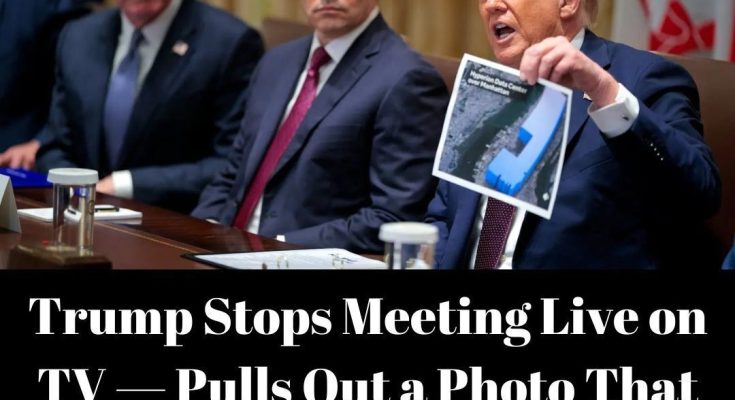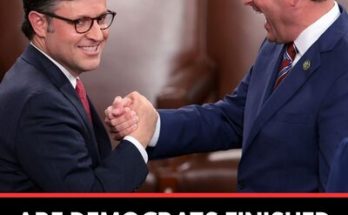 Newly declassified records from President Donald Trump’s intelligence agencies have shed light on how the Russian collusion investigation was launched and aggressively pursued while politically sensitive cases involving Democrats were blocked, delayed, or shut down.
Newly declassified records from President Donald Trump’s intelligence agencies have shed light on how the Russian collusion investigation was launched and aggressively pursued while politically sensitive cases involving Democrats were blocked, delayed, or shut down.The documents provide a detailed look at what critics describe as a two-tiered justice system. On one hand, federal law enforcement devoted extraordinary resources to investigating Trump and his allies from 2016 through 2024. On the other, evidence that potentially implicated Democrats or their associates — from corruption at the Clinton Foundation to leaks of classified information — went nowhere, The Washington Examiner reported.
“During the Biden administration, the Justice Department worked as his private attorneys,” Judicial Watch senior investigator Sean Dunagan told the Washington Examiner. “Even if one wants to avoid the phrase ‘deep state,’ there certainly is an administrative state, and the DOJ served to protect and ignore evidence and slow-walk investigations and close investigations into people who were close to that power establishment.
“It’s not how the DOJ is supposed to operate. It was highly selective in who they investigated and how,” Dunagan added.
Oversight Project chief counsel Kyle Brosnan echoed that sentiment, arguing that early paralysis inside the DOJ during Trump’s first term allowed entrenched bureaucrats to weaponize law enforcement.
“You didn’t have people with the strong backbone in political leadership at the Justice Department and intelligence community early on in Trump 1.0,” Brosnan said. “I think you saw a paralysis of political leadership that weren’t really willing to call a spade a spade for what was obviously weaponized or deep-state actors.”
Attorney General Pam Bondi has pledged to restore trust in the DOJ after nearly a decade of partisan investigations. Alongside her, FBI Director Kash Patel, Director of National Intelligence Tulsi Gabbard, and CIA Director John Ratcliffe have moved to declassify records showing how the Russia probe unfolded and how other inquiries were deliberately smothered.
Among those singled out in the newly released documents is Rep. Adam Schiff (D-CA), who rose to prominence by insisting there was overwhelming evidence that Trump colluded with Russia.
FBI interview notes known as 302s show a Democratic whistleblower told agents as early as 2017 that Schiff directed staffers to leak derogatory information about Trump. At one point, the whistleblower said Schiff even reassured aides he was protected from prosecution.
Despite repeated FBI interviews and supporting testimony from a Republican staffer on the House Intelligence Committee, the DOJ chose not to pursue charges, and Schiff never faced accountability.
The records also provide new context for the leaks that forced the resignation of National Security Adviser Michael Flynn in February 2017.
Intelligence agencies had intercepted a phone call between Flynn and Russia’s ambassador to the U.S., and his identity was “unmasked” in classified transcripts. Declassified lists later revealed more than 160 Obama-era officials, including Samantha Power, John Brennan, and James Comey, who requested access to Flynn’s identity.
Despite a years-long investigation, the FBI closed the case in 2020 after concluding that too many officials had access to pinpoint the leaker. Flynn was charged and convicted for lying to the FBI, but he was later pardoned by President Trump.
The Clinton Foundation investigation followed a similar path.
By late 2015, multiple FBI field offices were examining whether Hillary Clinton, as secretary of state, granted favorable treatment to donors. By 2016, DOJ leaders ordered the cases consolidated and then quietly shut down.
Even a recording from a cooperating witness that agents said supported the case was dismissed as “worthless hearsay.” At the same time, the DOJ pressed forward with the Russia investigation on far shakier evidence — a decision later condemned in Special Counsel John Durham’s 2023 report.
Bondi and other top officials argue the pattern shows systemic bias. Current investigations under Trump’s administration are probing whether the FBI and DOJ were deliberately weaponized against him starting in 2016.
Some cases face statute of limitations issues, but Dunagan said that should not stop investigators, especially if they can prove that a years-long conspiracy has taken place, thereby negating the statute of limitations.

